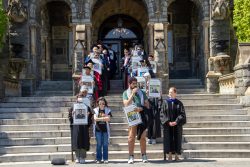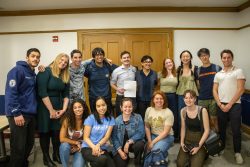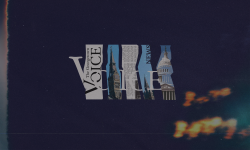Brian Trivers has lived in the District of Columbia for all of his 59 years. His family has been on the same street in Southeast D.C. since 1869. Trivers loves the city and is about as Washington as they come. But as the Washington Nationals open their third Major League season, will Trivers be supporting them?
“Sort of,” he says with a smile. Like many D.C. residents, Trivers is frustrated by the confused planning during the construction of the stadium on the Anacostia. Nevertheless, Trivers says he’s open to rooting for the Nats.
Many economists have said that the new stadium will probably not lead to the economic development expected by those who proposed the legislation. But for people like Trivers, there may be another benefit to having the Nationals in town. Successful and entrenched baseball teams powerfully contribute to municipal solidarity—try to imagine New York without the Yankees.
Professional sports teams unite city residents behind a common cause, contributing to a social identity that cuts across economic, racial and linguistic cleavages. Though economic problems will remain, municipal solidarity promotes effective political discourse and fosters the development of a more integrated society.
Of course, the Nationals are a far cry from the Yankees. Before the club can act as a unifying force in D.C., two things must happen.
First, they have to win. They haven’t had a winning season yet, and predictions for this season don’t inspire optimism. But the Nationals are young, and it will take some time for them to get on their feet. Given a few years, they could be taking on the best teams in the nation.
But in the District, winning really isn’t everything. The team also has to be recognized as a part of the community, and their record here is mixed. Through community outreach programs, the club has made clear efforts to court local affection. This is a good step, but for those like Trivers who feel ambivalently about the team, it will not be enough. The most important step is giving local residents a chance to watch the team in action.
On this count, Trivers says that the price of tickets will only end up alienating native Washingtonians, especially those living near the new stadium.
“The folks who live there are not going to be able to afford to go to a game unless it’s from some charity,” he says. “They’re living on middle-income wages, raising two or three kids.”
Major League Baseball is a business, and the club’s owners must recognize that it is in the club’s interest to cater to District citizens like Trivers. They are the fans who will stand behind a team even during the darkest seasons, but only once the Nationals’ cause has become their own. For that to happen, they need to be able to afford tickets. There really is no contradiction between good business and good citizenship.
Only the players and coaches can lead the Nationals into their new stadium with a winning season, but it is well within the reach of the club’s business managers to win over local residents with less expensive bleacher seats and ticket giveaways. Though economically the new ballpark threatens to disappoint, the Nationals can still contribute to a strong sense of community solidarity.




